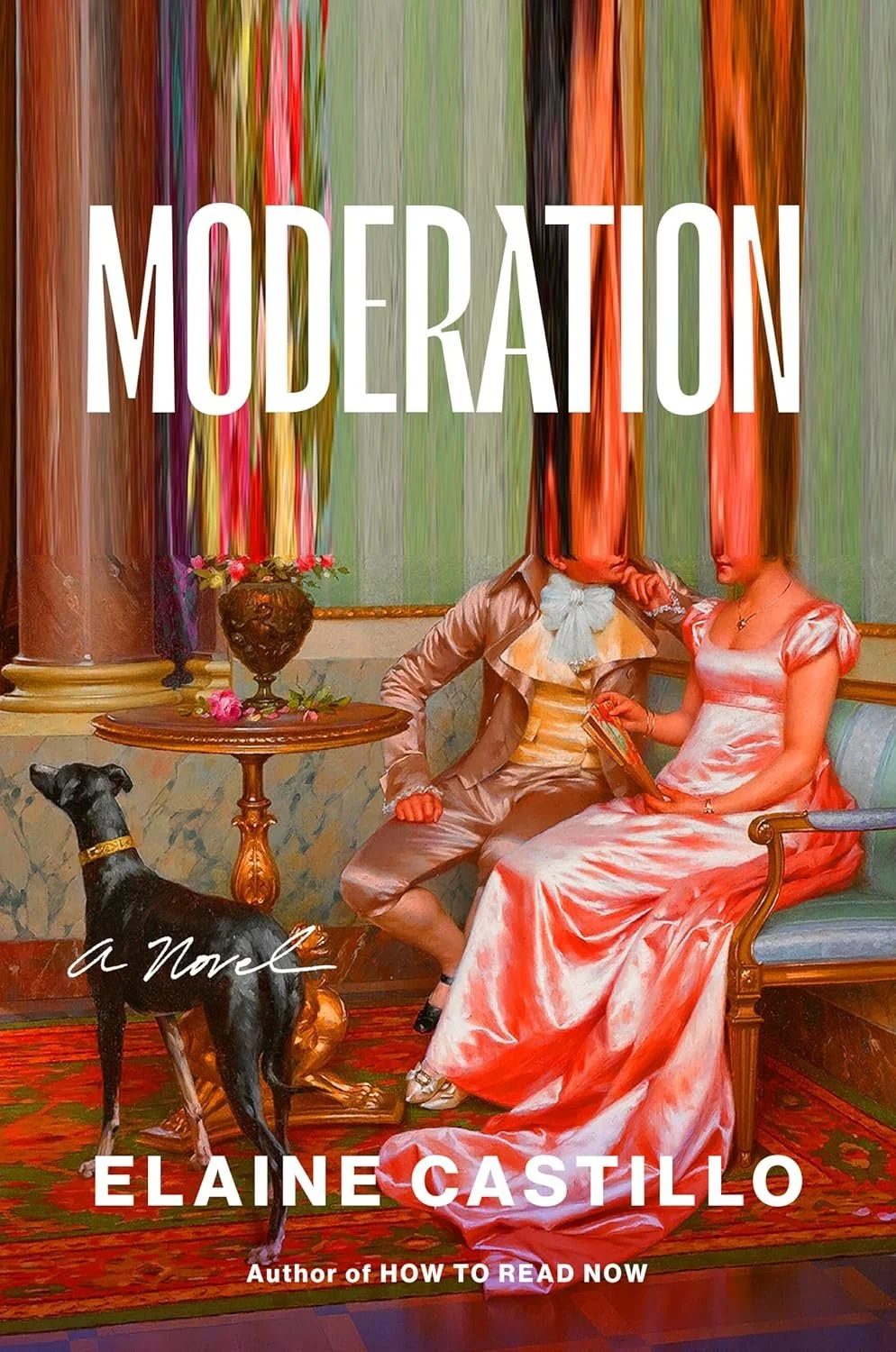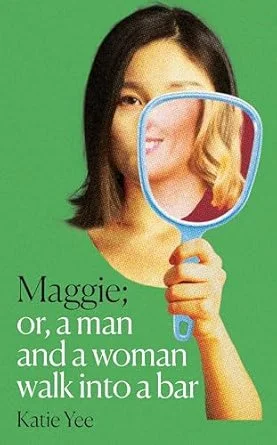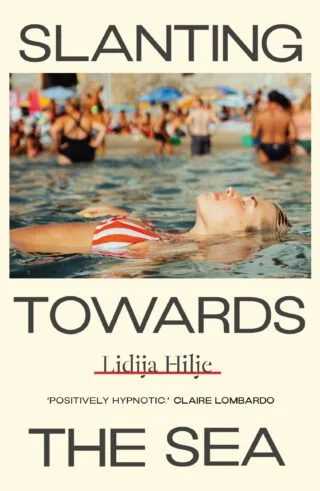A Map of Motherhood: A Q&A with Alice Kinsella
“They’re books about time, about longing, about fear, about money, about the environment. Motherhood is a lens through which some people view the world for a certain amount of time.”
First, congratulations on the publication of Milk! Your book has been described as a ‘map of motherhood’ and you are now part of a group of titles that deal with motherhood honestly. I wanted to ask which books on this subject particularly inspired you? And if you were to think of Milk as being involved in a dialogue with other books, which books would these be?
Thank you! When I started writing Milk, I hadn’t read any books explicitly about motherhood outside of pregnancy and parenting manuals (which, truthfully, I skimmed at best). But as I struggled with the early days, I realised that I had always turned to books for reassurance, connection, direction, and motherhood should be no different.
I had a first draft of Milk written when I started to engage with other books about motherhood. I sheepishly discovered that many of my profound (tongue is in cheek, here) ideas had been written before, more eloquently, while I myself was still in nappies. But this felt more encouraging than anything. It was the start of a refrain within the book, ‘Nothing here is new’, which aims to acknowledge that motherhood feels like a voyage into the unknown, even though it has happened to billions before us. This, of course, brings up the question: why is motherhood so shocking?
I read A Life’s Work by Rachel Cusk and Making Babies by Anne Enright, but the book that changed it all for me was The Best Most Awful Job, an anthology edited by Katherine May. It was the willingness to explore the darker sides of motherhood in these pieces that I was stimulated by, and I felt like my experience was not mine alone. I wanted to add to this conversation on motherhood, which is why there are so many quotes from other mother writers in the book. In this way, there is dialogue within Milk. I hope readers will go on to engage with it through other books I hadn’t considered.
As Milk reads as a mediation on a complex subject, you pose many questions and unresolved thoughts. I wondered if the writing process had changed or influenced your thoughts on any of these questions?
Yes. The writing process was essential to the raising of these questions. The climate crisis isn’t improving. I don’t feel like anti-natalism is the answer. I think people can be a force for good, but we just need to harness that good. Civil unrest. What’s happening in UK politics is horrifying to watch. We’re never far removed from it, here. This is a time in history that we need more empathy than ever, but also, more fight.
You include this wonderful quote by Anne Enright: ‘I felt as you do after trauma: language was no use to me. It has come back slowly, because it always does.’ And I wondered how your relationship with language is at the moment, and how the experience of publishing Milk has been?
It has changed, certainly. I still haven’t returned to poetry in the way I wrote poetry before pregnancy. But I’m not writing the way I wrote Milk either. Milk came out of this extraordinary rawness and focus that I found in new motherhood, and its later drafts were written during the eery silence of the pandemic. My life is noisier now. The baby isn’t a baby, but a full-blown human full of sentences, discovering the joys of language for himself.
I found your thoughts on the idea of documentation really interesting, as you explore documentation as being a preservation of the moment, but also a way to avoid being ‘present’ in the moment, and even the idea of ‘fighting death’ by recording your existence. What do you think about the difference between documentation in writing form and in photography? And have your thoughts on documentation changed at all since writing your book?
Thank you! That was a big breakthrough for me. I’m not feeling the pressure in the same way as I did when I was writing Milk. I’m writing lots, which soothes the restless need to document. I still struggle with being present, and there’s a chaos of photographs around the house. However, I’m not trying to document every second, or fill photo albums. For me, that can veer into a need to control and protect that isn’t healthy. I’m more passive these days; I don’t feel desperate to capture the uncapturable.
Do you think the conversation around motherhood has changed in Ireland and perhaps also in the book industry?
Absolutely. Though I’m cautious of the middle-class world that the book industry, and therefore many writers, operate in. I had been worried that some of the criticisms of the church in particular would feel outdated, but it’s easy to forget to factor in class and the urban rural divide – Ireland still struggles with the church’s influence. Despite many protestations, the National Maternity Hospital is being built on church land. The Magdalene survivors are struggling to gain adequate compensation, or even recognition. Maternity care is still warped by decades of the eighth amendment. These things don’t change quickly, but I do believe the conversation has gained momentum.
The book industry is exploding with motherhood books, and I hope that continues. Because, of all I’ve read, not one of these books is about ‘just’ motherhood. They’re books about time, about longing, about fear, about money, about the environment. Motherhood is a lens through which some people view the world for a certain amount of time. These are stories, like any other novel or memoir, and the idea that being the voice of a mother had relegated them to not being worth listening to, is something that has finally changed, hopefully for good.
You explore the saying, ‘it takes a village’ to raise a child – what do you think would need to happen in Ireland for this to happen? Do you think our modern way of living is in opposition to this idea?
This idea still stings. It’s so hard to find a village. I live in a literal village, and do not have a village in the traditional sense. Lockdown highlighted this fact for me, as I’m sure it did for many others. Lockdown had a lot of similarities to the early days of parenthood. The isolation. The fear. The distorted sense of time.
In Ireland, there’s a housing crisis, which certainly isn’t helping. People aren’t able to stay in one place long enough to build community. I’ve bopped around a lot the last decade, and I still think there’ll be a couple more moves ahead. I move, make friends, and then one or other of us leaves.
My family is my village. But my family is small. I’m an only child, and my family isn’t the only one. We’ve got an aging population. In the past, a parent and child would have aunts and uncles, siblings, a whole gaggle of kids. That’s just not happening on the same level. This is partially a good thing (reproductive rights!) but it’s also a sign of not being able to afford to have a family, of the economic uncertainty and climate anxiety that plagues young people today.
The modern way of life is rooted in capitalism and an illusion of meritocracy. We’re not taught to value where we come from, be that people or place. Young people are taught to aim ‘high’, and to become part of the labour market. The free labour of the domestic is ignored. Is it any wonder we’re so shocked to find ourselves alone during new parenthood, doing that free labour that we previously didn’t value?
Have you read any books recently that you would recommend to our readers?
I read The Salt Path, quickly followed by The Wild Silence and Landlines. Raynor Winn has broken both the mould and my heart.
Soundings by Doreen Cunningham; Whales, motherhood, a doomed love affair. Just buy it. You won’t regret it.
Trespasses by fellow Connacht writer, Louise Kennedy. This needs no recommending really, it’s everywhere, and rightly so.
We Were Young by Niamh Campbell should be given to every disenfranchised f*ckboy instead of that Peterson nonsense. It’s an exquisite and highly entertaining novel.
Twelve Thousand Days by Éilís Ní Dhuibhne. I only read this one recently but was so struck by the ferocity of both the love and anger in it.
I read a lot of poetry, even when I’m miles from writing it. I recently enjoyed Dylan Brennan’s Let the Dead (Banshee, 2023), and Molly Twomey’s Raised Among Vultures is startlingly good, a real original.
And lastly, a question we ask everybody - do you judge a book by its cover?
Yes! I hate the ‘don’t judge a book by its cover’ saying. I understand where it comes from, especially the more cynical side of capitalism where you see variations of the same cover trotted out to appeal to the same audience. But I come from a very visual orientated house, and many of my friends are visual artists. In my experience, the cover is a labour of love, and of deep engagement with the text. A book is a collaborative process, much more so than I realised before Milk was published. It was an honour to have my words interpreted and understood by a design expert. Katie Tooke, who designed the cover for Milk, did such a wonderful job, and deserves to have her art appreciated accordingly.
Editorial Picks




